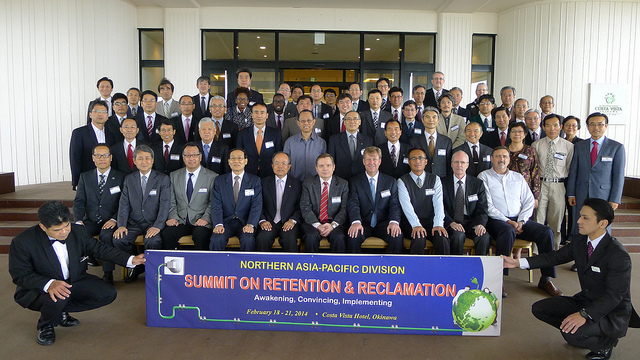The Northern Asia-Pacific Division (NSD) Summit on Retention and Reclamation was held from February 18 to 21, 2014, in Okinawa, Japan.This meeting focused on the issue of newly baptized members leaving the church within one year after their baptism.
This is not only an issue within the NSD, but there are many cases where churches seem to be interested in only the number of baptisms and do not provide proper care for new members in terms of spiritual growth and nurturing. For this reason, the General Conference (GC) and other institutions are paying close attention to the retention rate, which shows the retention of newly baptized members.
In 2013, the GC held a Summit on Nurture and Retention, which dealt with this issue.
The NSD has started a Retention Project, which is a pilot project, and held this meeting to seek ways of improving the retention rate in the NSD territory in accordance with the global issue of retention.

Delegates of the Summit on Retention and Reclamation. For more pictures please visit our NSD Flickr page: http://www.flickr.com/photos/nsdadventist
In the opening ceremony, Dr. Jairyong Lee, NSD president, remarked on the importance of this meeting: “We should acknowledge and see the current situation of retention in our churches in the NSD territory, and we should cooperate together to establish plans and methods which are implementable, adjustable, acceptable and continuous.”
Guest speakers Elder Artur Stele and Anthony Kent from the GC, NSD ministrial association secretary David Ripley, assistant to NSD president Joo Minho, and NSD retention coordinator Teru Fukui emphasized the importance of retention. All union conference presidents, union conference coordinators, and theology department chairs from each union conference participated in themeeting to seriously discuss the matter and to try to find a solution.
They recognized the serious issue of retention and had many group discussions. It was a blessing to work together to develop plans and methodologies that are acceptable and adjustable for each culture-based society.
